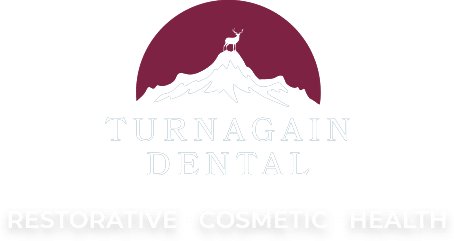
Everyone occasionally experiences the parched feeling of dry mouth; it is more common in stressful circumstances such as speaking in front of a large crowd. But for some people, dry mouth is not an infrequent nuisance — it is a persistent problem that causes discomfort and affects oral and overall health. Chronic dry mouth can make it difficult to chew, speak or swallow; it can also cause sore throats and change appetite and sense of taste.
Take a moment to learn more about the causes of and solutions to dry mouth, explained by Anchorage dentist Joshua Kennedy, DMD.
Common Causes of Dry Mouth
Dry mouth occurs when the salivary glands in the mouth do not produce enough saliva to keep the mouth moist. This can occur for various reasons.
Certain medications, such as drugs that treat depression, high blood pressure or anxiety, can interfere with the quantity or quality of saliva production. Antihistamines, decongestants, muscle relaxers and pain medications are also known to lead to dry mouth.
Another common cause of dry mouth is health conditions such as diabetes, stroke, or autoimmune disorders. People undergoing chemotherapy or radiation for cancer tend to experience dry mouth.
Smoking as well as alcohol and drug use can cause and worsen dry mouth.
Possible Health Consequences of Dry Mouth
Saliva does more than keep the mouth moist and comfortable; it plays an important part in oral health. Saliva washes away food particles and neutralizes acids produced by bacteria, reducing the risk of tooth decay. It also helps make it easier to chew and swallow, and it aids in digesting food.
If dry mouth is left untreated, the risk of tooth decay and gum disease can increase. Mouth sores, cracked lips and split skin at the corners of the mouth may develop. In the worst circumstances, malnutrition may occur due to trouble chewing and swallowing.
Solutions for Dry Mouth
Treating dry mouth depends on the cause of the problem.
Stopping or switching medications known to cause dry mouth can help, as can drinking more water, chewing sugarless gum or sucking on sugar-free hard candy. Cutting back on alcohol, tobacco or drug use is also recommended. There are certain toothpastes, toothbrushes and mouthwashes that we recommend and certain ones we recommend avoiding because they can contribute to the problem and/or create other problems.
If these strategies do not work, there are a variety of over-the-counter and prescription medications and products that enable the salivary glands to produce more saliva. There are also products to supplement saliva that the glands cannot produce. Dr. Kennedy can suggest an over-the-counter option or prescribe a particular product if needed.
Contact Turnagain Dental
If you constantly feel parched, Dr. Kennedy can help. Schedule an appointment with the Anchorage dentist by calling or emailing Turnagain Dental today.

